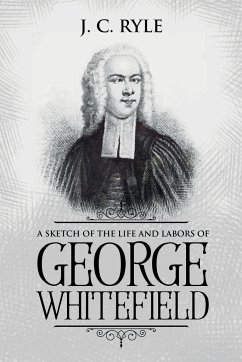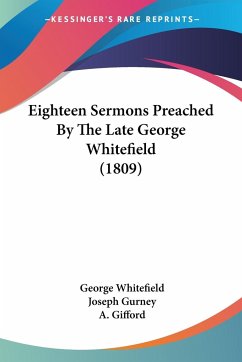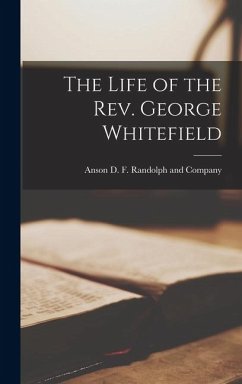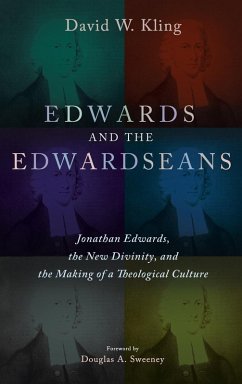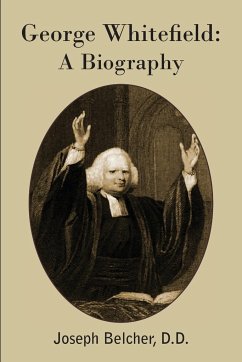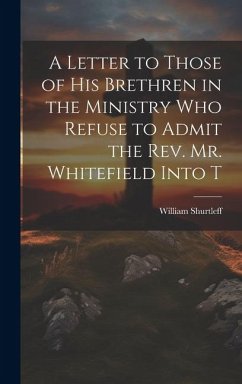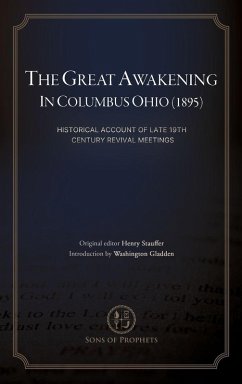
A Sketch of the Life and Labors of George Whitefield
Annotated
Versandkostenfrei!
Versandfertig in 1-2 Wochen
14,99 €
inkl. MwSt.
Weitere Ausgaben:

PAYBACK Punkte
7 °P sammeln!
George Whitefield was a popular Calvinist circuit preacher of England and frontier America who along with John Wesley, Charles Wesley, and Jonathan Edwards was very influential in the American Great Awakening of the mid-18th century. In a brief life of fifty-seven years, Whitefield shared Jesus and the Gospel with more messages to more people than any other minister of his day. This excellent summary of his life brings the reader to a crossroads between total commitment to Jesus or a compromised life with the things of self and the world. This is not a research work, but a defense of Whitefiel...
George Whitefield was a popular Calvinist circuit preacher of England and frontier America who along with John Wesley, Charles Wesley, and Jonathan Edwards was very influential in the American Great Awakening of the mid-18th century. In a brief life of fifty-seven years, Whitefield shared Jesus and the Gospel with more messages to more people than any other minister of his day. This excellent summary of his life brings the reader to a crossroads between total commitment to Jesus or a compromised life with the things of self and the world. This is not a research work, but a defense of Whitefield's ministry, which suffered unduly harsh criticism from the so-called "old lights," those Anglican and Congregational clergymen who thought the Great Awakening, and Whitefield's ministry, to be steeped in hyper-emotionalism and experience-based religious effects. In this still relevant book, J. C. Ryle goes to work defending Whitefield in terms of the substance of Whitefield's preaching, which he contends was Scriptural to the core.





